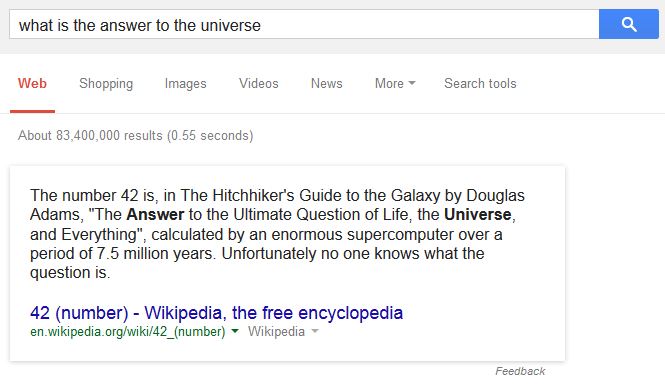It is the stuff of science fiction. Issac Asimov’s Multivac stored every computable answer save for one. The decades-long series Star Trek‘s ship computer could answer any question posed to it, and did so in conversational format. Arthur C. Clarke’s infamous HAL 9000 was an artificial intelligence computer that calmly conversed with it’s doomed crew. Hundreds of other fictional computers were storehouses of knowledge, facts, and providers of answers to every question we could pose. The literary and cinematic myth of the all-knowing computer has been around since the dawn of computing technology and before, but until now has remained a myth.
Enter Google’s Knowledge Vault
It has been reported on before that the Google enterprise has a small obsession with Star Trek, and that the corporation aims to create the ultimate interactive search experience. It appears that day is just around the corner, as Google’s Knowledge Vault “autonomously gathers and merges information from across the web into a single base of facts about the world, and the people and objects in it.” New Scientist continues, reporting “Knowledge Vault has pulled in 1.6 billion facts to date. Of these, 271 million are rated as “confident facts”, to which Google’s model ascribes a more than 90 per cent chance of being true.” The sheer scale of this project is mind boggling, as is the process that is being undertaken in order to make it possible.
Google is not alone in this venture, as other giants such as Facebook and Microsoft are purportedly creating their own databases. More likely than not, this year’s Conference on Knowledge Discovery and Data Mining going on right now in New York will provide some compelling food for thought regarding the future of knowledge gathering and data mining.
How Will the Knowledge Vault Affect Business?
Of course, as an SEO and internet marketer, this is one of the first questions that must be asked with the advent of such a technology. The advent of such a technology would remove the 1:many search results system that we are familiar with now – and replace it with a very clear 1:1 question to answer ratio. This can potentially eliminate the possibility of converting new business with the practice of providing industry-based answers. In fact, it nearly begs a new strategy from businesses – one where they must create the question – one that can only be answered by their brand.
One example of how this could work is a viral question campaign. We’ve already seen the evidence of question campaigns working – do any of these phrases sound familiar to you? Who is John Galt?, Who Watches the Watchmen? (originally Quis custodiet ipsos custodes?) How many licks does it take to get to the center of tootsie pop roll? What can brown do for you? and maybe one of the more famous answers, 42. Each of these, in their own right, are perfect bit(e)-sized advertising campaigns that lead to their own specific destination.
Ultimately, my question is this: Who will fact-check the fact-checker?
This remains to be seen.

